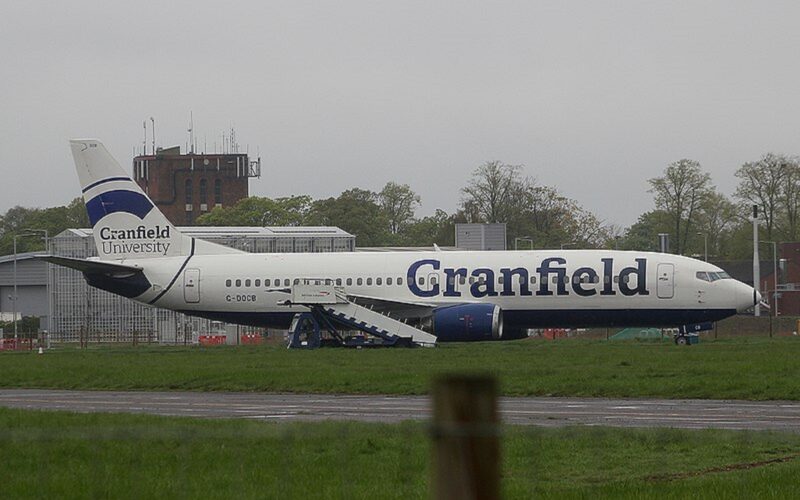A new university study will look at passenger’s behavior during the evacuation of a plane and is asking for 400 volunteers to help.
The project ran by Cranfield University in the United Kingdom (UK) aims to improve the safety of evacuation from planes.
The project, which is being conducted in collaboration with the University of Greenwich, will focus on observing the exiting behavior of those aged between 18 and 65 years old, from a stationary aircraft.
The aircraft used will be the Boeing 737 stationed outside Cranfield University’s Digital Aviation Research and Technology Centre (DARTeC) facility.
The researchers will explore the choices made by passengers during evacuation scenarios and investigate the influence of the cabin design upon participants’ decisions.
“Understanding human behavior during aircraft evacuation scenarios is crucial for enhancing safety measures. Our collaboration with the University of Greenwich allows us to study the choices made by participants and evaluate the impact of cabin design on their decisions,” said Zuzana Chin, the Safety & Accident Investigation Centre mastership manager at Cranfield University. “The aim of this study is to drive improvements of evacuation procedures and ultimately enhance aviation safety.”
Volunteers will be instructed to leave their seats and safely make their way to an exit door before tapping it.
Video cameras positioned throughout the cabin will record the exiting behavior of the participants.
After disembarking, participants will return to an adjacent building to complete a questionnaire, which will cover topics such as seat location, chosen exit, reasons for the choice, and perceptions of cabin aspects.
The jet will always remain stationary during the experiment and emergency evacuation slides will not be used.
There will be no smoke in the cabin to simulate an emergency, but audio will be used to replicate the start of engines.
The research exercise takes place between August 15 and 20, 2023. To register an interest in taking part, please sign up on the Cranfield University website.

